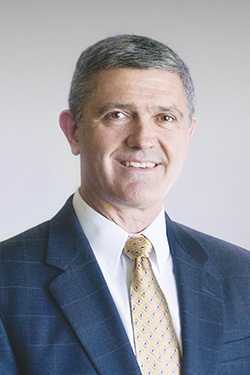The Magic of a High-Performing Team (OPINION)
by September 15, 2014 12:02 am 95 views

I have always enjoyed the energy that comes from athletic competition, but I also love watching sporting events and sports movies, because they often tap directly into powerful emotions and memories.
Watching the improbable early success of the U.S. World Cup Soccer team this summer brought back several of those memories. For instance, the excitement I experienced watching the U.S. Men’s 4×100 Meter Relay team edge out the East Germans at the 1976 Montreal Summer Olympics is rivaled only by the raw power I felt as I sat directly under the goal while John Havlicek and Dave Cowens muscled out a win for the Celtics at the Boston Garden in 1977.
However, one of the most impactful stories of a high-performing team is also one of my most vivid and emotional memories, for a very different reason. The story begins with a young freshman (called a “plebe”) at the U.S. Naval Academy in February of 1980. Sitting in the doorway of my dorm room, I strained to hear the USA vs. USSR Olympic hockey semifinals from Lake Placid, New York. Plebe year at the Naval Academy was spartan and harsh, but a formative experience for a first-year midshipmen. Plebes were not allowed to listen to music or watch television and were given little to no personal or relaxation time. In fact, the middle of winter in Annapolis, Maryland, was called the “Dark Ages” not only because of the bitter gray skies that covered the Chesapeake Bay, but also because many first-year midshipman wondered if the challenge and discipline would ever end.
However, on a cold night in February, something amazing happened as a team of virtually unknown college hockey players shocked the world by defeating a Soviet dynasty that had dominated Olympic hockey for years. The match was a classic underdog story with a heroic finish and the “Miracle on Ice” has long been cited as an example of what can be achieved when a team is truly aligned for high performance. Two days later, the U.S. came from behind a second time to defeat Finland for Olympic gold. For a moment in time, it seemed that nothing else in the world mattered, that the “Dark Ages” had somehow melted away. Even the plebes were given a chance to relax and celebrate the pride and joy they shared with the upper-class midshipmen.
Why were so many of us moved so deeply by these accomplishments? I believe it is the magic of high performance. While there is no inherent magic in the greater trust, mutual accountability, and shared commitment embodied by a high-performing team, there is a magical effect that spills over to the emotions shared by the people, organizations, and communities touched by those teams. The cohesion, synergy, and power flowing outward from high-performing teams creates and amplifies shared momentum, much like waves expanding outward from a splash in the middle of a pond. Clearly, the promise of organizational or business success motivates teams to high performance. However, there are less-recognized, but long-lasting social and cultural benefits of high performance that enrich the lives and stories of people around those teams. Shared pride in the accomplishments of our kin and the inspiration to follow role models to greatness are powerful stories and legends that enrich our cultural fabric. What coach Herb Brooks created from a pool of raw talent will go down in the books as an example of visionary leadership, but what isn’t recorded is the social and cultural impact the U.S. victory provided at a time when the nation’s role as a world leader was in question. The “Miracle on Ice” stands as an inspirational example of what is possible through high performance.
Even though I never watched the game on television (I was a plebe, after all), etched into my memory is the image of passion and unity as plebes and upper-class midshipmen alike chanted “USA, USA …” All because a team of little-known hockey players, in the middle of the “Dark Ages,” achieved the impossible — that is the real magic of high performance.
Capt. Steve Trainor (U.S. Navy, retired) holds a Ph.D. in sociology and serves as director of research for The Soderquist Center in Siloam Springs. He contributes to the Northwest Arkansas Business Journal on topics of leadership, ethics and values.
